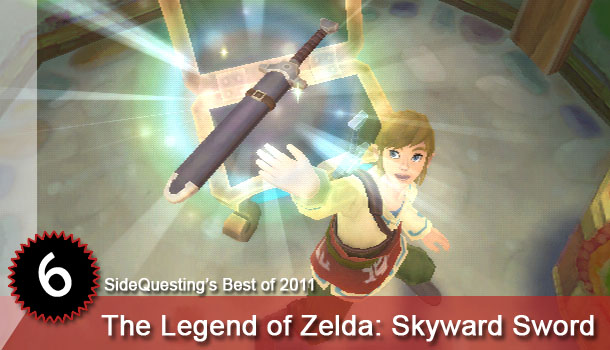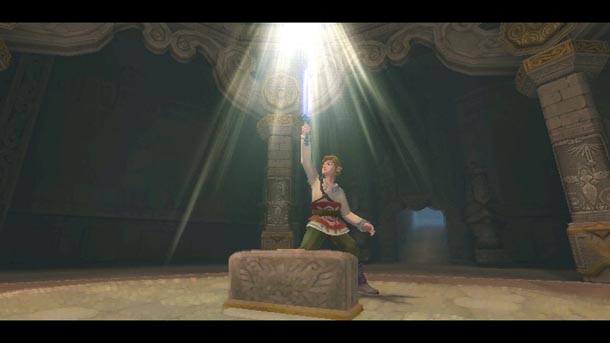
I think that there are two main genres of daydreaming that geeks today subscribed to while growing up: science fiction and fantasy. For me, it was the latter that helped shape the geek that I am today (I didn’t discover Star Wars until college. I know; I’m awful.) I loved the Middle Ages as a kid. It was the only unit in social studies that I cared to learn anything about. As the timid, straight-A Asian kid in class, there was something about the Middle Ages that really appealed to me. Maybe it was the heroics, chivalry, and saving the lady that I really fell in love with because that was the furthest thing from who I was in real life. Either way, this is what I day dreamed about as a child.
Running around with a sword, slaying monsters, and saving the princess were all ideas that never would have touched my five-year old mind if it werent for The Legend of Zelda. Before I even knew there was such thing as the Middle Ages, there was The Legend of Zelda. Before I even knew what a dragon was, there was Aquamentus at the end of Level 1. At that age, if I wasn’t playing Zelda, I was out in my backyard in Long Island with a wooden paint stirrer from Home Depot killing imaginary monsters and smooching up on imaginary princesses.
As a kid, I wanted to be Link. And today, as a grown-ass man, The Legend of Zelda: Skyward Sword has allowed me to interact with that fantasy at a deeper level than I ever had before.

I would like to think that anyone with a heart would give anything to be able to vividly experience a childhood daydream as an adult. It’s a chance to truly forget and remember. That’s what Nintendo offered me in the form of Skyward Sword. And I bit.
Hard.
Two summers ago, I was the SideQuesting staffer who wrote the preview for this game after the Nintendo presser. I cold-heartedly broke down each mechanic that an item brought to the experience as a Wii Sports Resort mini-game. This assessment still holds true, but it’s hard to dismiss it as just that. After securing a finished game and playing through it in its entirety, this is one of those cases where the whole is greater than the sum of its parts. Skyward Sword was successful because it provided the “backyard experience” of playing as (pretending to be) Link and filled in the blanks — normally sketched in with my imagination — with a colorful rendition of Hyrule and a story that would satisfy the most rabid Zelda fan.
For someone like me who fears getting old, playing Skyward Sword and being able to daydream like I did as a kid in a world that I love was an incredibly therapeutic experience.


No Comments